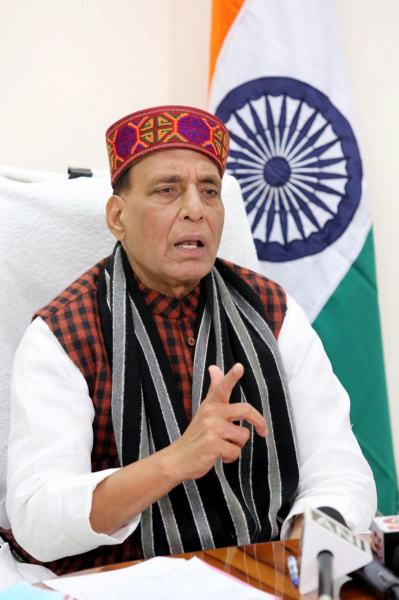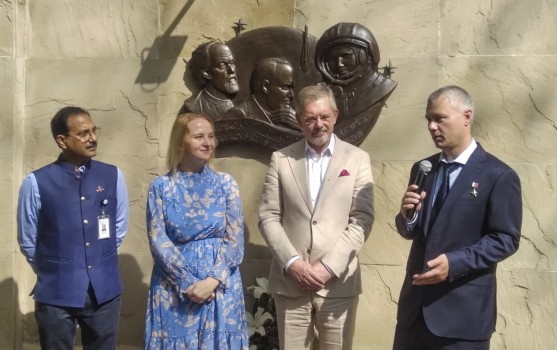BEIJING (PTI): China has revised its National Defence Law, expanding the power of its armed forces headed by President Xi Jinping to mobilise military and civilian resources to defend its national interests both at home and abroad.
The new law, effective from January 1, weakens the role of the State Council, China's Cabinet headed by Premier Li Keqiang, in formulating military policy, handing decision-making powers to the Central Military Commission (CMC), the overall high-command of the two million-strong People's Liberation Army (PLA) headed by Xi, Hong Kong-based South China Morning Post reported on Sunday.
Xi, 67, has emerged as the Communist Party of China's (CPC) most powerful leader after its founder Mao Zedong, holding the posts of CPC General Secretary, head of the military besides the Presidency with prospects of a life-long tenure.
He is the only civilian leader in the CMC, packed with high-ranking military officials.
The amendments for the National Defence Law (NDL) were passed by the Standing Committee of the National People's Congress (NPC) on December 26 last year.
The revised law came into force after the key conclave of the ruling CPC in November last year finalised plans to build a fully modern military on par with the US by 2027.
By the year 2027, which marks the centennial of the founding of the PLA, China will build a fully modern military, a goal that is in alignment with the national strength and will fulfil the future national defence need, official media reports earlier said.
The revised law specifically stresses the need to build a nationwide coordination mechanism for the mobilisation of state-owned and private enterprises to take part in research into new defence technologies covering conventional weapons, as well as the non-traditional domains of cybersecurity, space and electromagnetics.
Military and political analysts said the new NDL aimed to strengthen the country's military leadership under Xi, providing it with the legal grounds to respond to the challenges of accelerating confrontations between China and the US.
Deng Yuwen, a former deputy editor of the Communist Party publication Study Times, said the amendments aimed to legalise and formally apply the special nature of China's political and defence system when dealing with situations that could harm the regime at home and abroad.
China's political nature is very different from many countries...it's not surprising for Beijing to enhance the leadership of the CMC when the PLA is going out to defend China's national interests across the world, Deng told the Post.
Chen Daoyin, a former professor of Political Science and Law at the Shanghai University, said the changes showed the regime had gained the confidence to legitimise its long-standing principle that the party commands the gun and stamp its absolute leadership over-armed and reserved forces .
The move to include development interests' as a reason for armed mobilisation and war in the law would provide legal grounds for the country to launch a war in the legitimate name of defending national development interests, Chen said.
Zeng Zhiping, a military law expert at Soochow University said one of the big changes of the law was the downgrading of the State Council's role in formulating the principles of China's national defence, and the right to direct and administer the mobilisation of its armed forces.
The CMC is now formally in charge of making national defence policy and principles, while the State Council becomes a mere implementing agency to provide support to the military, Zeng, who is a retired PLA lieutenant colonel, said.
It's a big contrast when compared with developed countries like Israel, Germany and France, which prefer to put their armed forces under civilian leadership. Even in the US, the civilian-led defence ministry plays a more important role than their military top brass, the Joint Chiefs of Staff, he said.
China's new defence law expands power of its military headed by Xi
Article Posted on : - Jan 04, 2021
Other Related News
Multilateral exercise AIKEYME to begin from Apr 13; INS Chenna, INS Kesari arrive in Dar-es-Salaam
The inaugural edition of the multilateral exercise -- Africa India Key Maritime Engagement (AIKEYME) -- is set to take place from April 13 to 18 with an aim to promote the vision of mutual and holistic advancement for security and growth across regions (MAHASAGAR).
 Previous Article
Previous Article Next Article
Next Article










The Indian Air Force, in its flight trials evaluation report submitted before the Defence Ministry l..
view articleAn insight into the Medium Multi-Role Combat Aircraft competition...
view articleSky enthusiasts can now spot the International Space Station (ISS) commanded by Indian-American astr..
view article